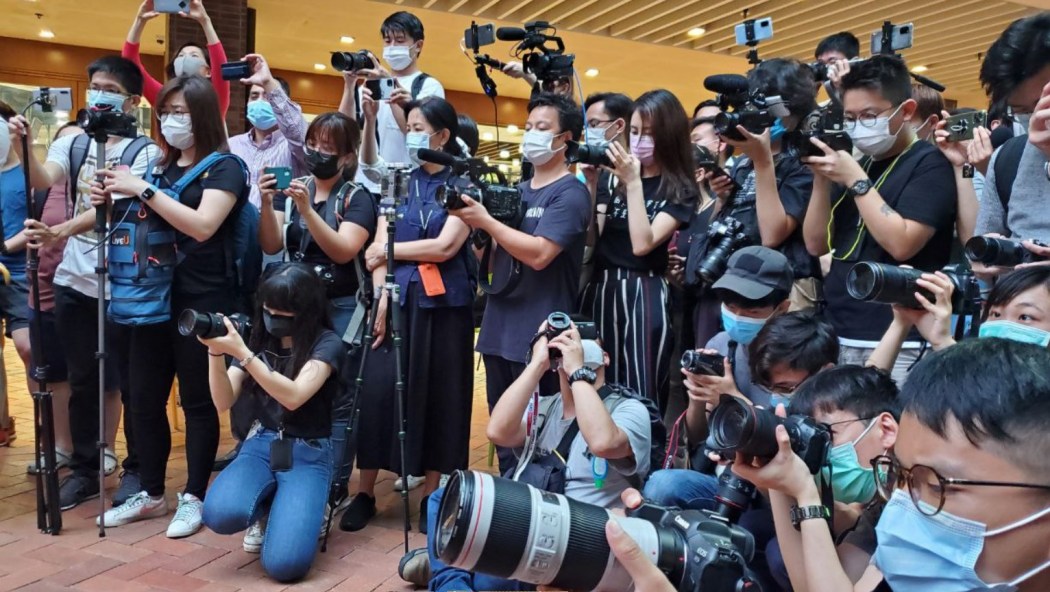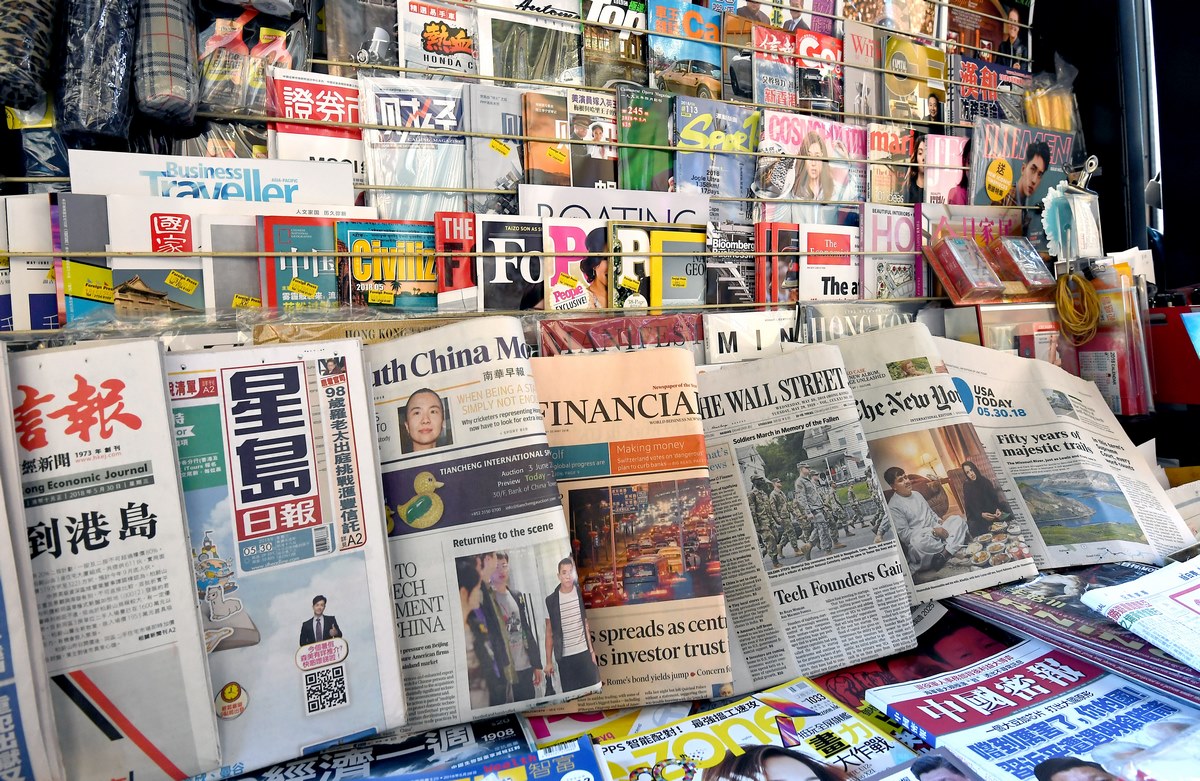Almost 70 per cent of journalists in Hong Kong say they have self-censored in their own writing, a survey conducted by the Hong Kong Foreign Correspondents’ Club (FCC) has found.

The results, released on Wednesday, surveyed members of the press club on working conditions in the city.
In response to a question about the extent to which respondents have self-censored their writing “either in content or by avoiding covering certain subjects,” 47 per cent said “slightly,” while 18 per cent said “considerably.”
The total figure of 65 per cent marks an increase from two years ago, when 56 per cent of survey respondents said they had self-censored.
Meanwhile, 57 per cent said they had encountered censorship at their news outlet, and 67 per cent agreed that they had a “clear sense” of what subjects are “sensitive.”
“An increasingly cautious approach to content is one of the most significant findings” of the survey, an article in the July issue of The Correspondent, the FCC’s quarterly magazine, read.
Among the respondents, 83 per cent said they believed the working environment for journalists in the city had “changed for the worse.” 14 per cent said there was “no change,” while 3 per cent said it had “changed for the better.”

The results are similar to the findings two years ago, when 84 per cent said they thought the work environment had worsened while 15 per cent said they felt no change.
Last month, the FCC’s annual general meeting saw a new president take the reins and an announcement that it had set guidelines for releasing statements on press freedom issues, which include seeking legal advice and contacting the government. Up until the day of the meeting, the club had not commented on local press freedoms in eight months. The new guidelines are viewable only by members.
Lee Williamson, the new president, heads a platform under lifestyle publication Tatler. In the “from the president” opening section of The Correspondent’s July issue, he said that “now more than ever, the FCC has a crucial role to play in defending press freedom.”
A total of 66 people responded to the survey, representing 22.5 per cent of the club’s correspondent and journalist members. The club’s membership is otherwise dominated by associate members, or those working outside the news industry.

In comparison, 99 people took part in the survey in 2021, or 25 per cent of the club’s correspondent and journalist members.
Possibility of arrest
Press freedom in Hong Kong has come under the spotlight since Beijing passed a national security law in June 2020 in response to protests and unrest that began the year before.
In 2021, two major news outlets Apple Daily and Stand News – both known for their pro-democracy stance – closed down after their newsrooms were raided and staff arrested under national security and sedition charges.
The government, however, has said that press freedom is “respected and protected.”
Asked whether they were concerned about the possibility of arrest or prosecution related to their journalistic work, 56 per cent of survey respondents said they were “slightly concerned,” while 17 per cent said they were “very concerned.”

According to the FCC, 82 per cent of respondents said they were concerned about digital and physical surveillance but had not experienced it. The club added that one respondent said they had experienced physical surveillance, and four that they had seen both physical and digital surveillance.
The figures were “low but troubling,” the FCC article read.
The survey also asked respondents about whether they were concerned about the possible passing of a “fake news law.” Over recent years, the government has said such a law was necessary for combatting the spread of false information, while the city’s police chief has blamed “fake news” for the “hostile” relationship between the public and the police.
Chief Executive John Lee, however, said last week that Hong Kong may drop plans for the legislation and that misinformation can be tackled by other means.
77 per cent said they were “very concerned” about the possible introduction of a fake news law, while 18 per cent said they were “slightly concerned.”
Support HKFP | Policies & Ethics | Error/typo? | Contact Us | Newsletter | Transparency & Annual Report | Apps
Help safeguard press freedom & keep HKFP free for all readers by supporting our team

LATEST FROM HKFP
HKFP has an impartial stance, transparent funding, and balanced coverage guided by an Ethics Code and Corrections Policy.
Support press freedom & help us surpass 1,000 monthly Patrons: 100% independent, governed by an ethics code & not-for-profit.










